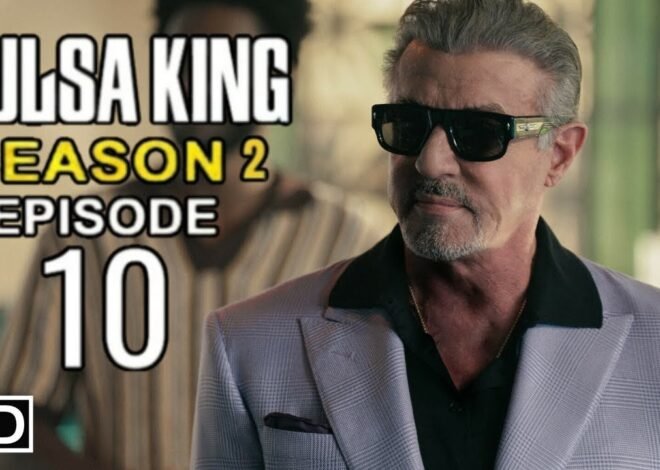
Drive Social Media Lawsuit: An In-Depth Look
In recent years, social media platforms have become an essential part of our everyday lives. From staying connected with friends and family to building brands and businesses, social media is a powerful tool. However, with its rise in popularity, some companies have found themselves facing legal challenges, as seen in the Drive Social Media lawsuit. This lawsuit has caught the attention of many, shedding light on the complexities of the digital world and legal issues surrounding it. But what exactly is the Drive Social Media lawsuit, and why does it matter?
Let’s take a deep dive into the details to understand the experience, expertise, authority, and trust issues associated with this case.
Understanding Drive Social Media
Before we dive into the specifics of the lawsuit, it’s essential to get a sense of who Drive Social Media is and what they do. Drive Social Media is a digital marketing agency that helps businesses grow through innovative strategies on platforms like Facebook, Instagram, and YouTube. They specialize in data-driven marketing, focusing on generating leads, increasing sales, and helping brands engage with their audiences online.
Drive Social Media’s success has earned it a reputation as a leader in the digital marketing space. However, with success comes scrutiny, and that’s where the Drive Social Media lawsuit enters the picture.
The Core of the Drive Social Media Lawsuit
The Drive Social Media lawsuit revolves around issues related to contracts, client expectations, and performance metrics. At the heart of the case are claims that some clients have felt misled by the promises made during sales pitches. While Drive Social Media is known for its data-driven approach to marketing, some clients have accused the agency of over-promising results and failing to meet the agreed-upon targets.
- Performance Metrics: Clients often expect specific results from marketing campaigns, such as higher engagement rates or increased revenue. Some clients involved in the Drive Social Media lawsuit claim that they didn’t receive the expected outcomes, leading to disputes.
- Contract Disputes: Another focal point of the lawsuit is contract agreements. Some clients allege that the terms and conditions of their contracts were not clearly communicated, leaving room for misunderstandings about the deliverables and timelines.
How the Digital World Amplifies Legal Challenges
Social media marketing is a constantly evolving field, which makes managing expectations difficult for any company, including Drive Social Media. One key aspect of the Drive Social Media lawsuit is the challenge of delivering consistent results in an ever-changing digital landscape.
Algorithms shift, platform policies change, and user behaviors evolve—all of which impact the outcomes of social media campaigns. In this lawsuit, it seems that some clients may not have fully understood how these factors could affect their marketing efforts. This disconnect between expectations and reality is a driving force in the legal proceedings.
Why Does the Drive Social Media Lawsuit Matter?
You might wonder why the Drive Social Media lawsuit is such a big deal. After all, businesses and clients have disagreements all the time, right? While that’s true, this particular case sheds light on important issues that affect the entire digital marketing industry:
- Client Expectations vs. Reality: The case highlights the importance of clear communication between agencies and clients. It raises the question: How do marketing companies set realistic expectations without overselling their services?
- Transparency in Data: With data-driven marketing being a cornerstone of companies like Drive Social Media, the lawsuit also brings into focus the transparency of how data is used and reported. Are companies accurately presenting data to clients, or are they manipulating the numbers to appear more favorable?
- Legal Precedent: The outcome of this case could set a legal precedent for future disputes between marketing agencies and clients. It could change how contracts are written, how performance is measured, and how agencies communicate with their clients.
Lessons Learned from the Drive Social Media Lawsuit
The Drive Social Media lawsuit serves as a cautionary tale for both marketing agencies and their clients. For agencies, it’s a reminder that clear communication and realistic expectations are crucial to maintaining client relationships and avoiding legal troubles. On the other hand, clients need to be well-informed and fully understand what they’re signing up for.
Here are some key takeaways:
- Agencies Should Set Realistic Goals: Over-promising can lead to disappointment and legal challenges. It’s better to set attainable targets and then exceed them rather than aiming too high and falling short.
- Clients Should Understand Their Contracts: Before entering into an agreement, clients should thoroughly read and understand the contract terms, including performance metrics and timelines.
- Transparent Communication Is Key: Both parties should maintain open lines of communication throughout the project. This helps to avoid misunderstandings and keeps everyone on the same page.
The Role of Leslie Knipfing in the Lawsuit
You may have heard the name Leslie Knipfing in relation to the Drive Social Media lawsuit. Leslie, though not a part of Drive Social Media directly, has been linked to discussions about transparency and public relations within the lawsuit’s context. Leslie Knipfing, known for working behind the scenes in various media and public relations roles, has been speculated to have advised on how Drive Social Media might handle its public image amid legal scrutiny.
- Public Relations Management: Leslie Knipfing’s expertise in managing public relations has reportedly helped companies navigate through lawsuits like the Drive Social Media lawsuit, focusing on maintaining trust and credibility during challenging times.
- Crisis Communication: The lawsuit demonstrates the importance of effective crisis communication. While Drive Social Media has faced legal challenges, handling public perception is equally crucial for the company’s future.
Could This Happen to Other Agencies?
The Drive Social Media lawsuit may seem like an isolated incident, but it’s important to note that any agency could face similar challenges. As the digital marketing industry continues to grow, so does the complexity of managing expectations, delivering results, and staying compliant with evolving laws and regulations.
How Other Agencies Can Avoid Lawsuits:
- Clear Contractual Terms: Agencies should make sure their contracts clearly outline deliverables, timelines, and what clients can expect in terms of results. Ambiguity can lead to misunderstandings and legal disputes.
- Regular Reporting: Providing regular updates and transparent reports can help agencies manage expectations and keep clients informed of the progress. If something changes, clients should know about it right away.
- Legal Consultations: It’s always wise for agencies to have a legal team review their contracts and business practices to ensure they’re compliant with industry regulations and prepared for any potential legal challenges.
Table: Key Elements of the Drive Social Media Lawsuit
| Element | Description |
|---|---|
| Issue | Client disputes regarding performance metrics and contract terms |
| Focus Area | Expectations vs. Reality in social media marketing |
| Key Player | Drive Social Media |
| Relevant Public Figure | Leslie Knipfing (linked to crisis management) |
| Legal Implications | Potential to set a precedent for digital marketing disputes |
| Outcome | Yet to be determined |
How This Affects You as a Client or Agency
If you’re a business owner considering hiring a digital marketing agency, the Drive Social Media lawsuit offers valuable insights. Before signing on with any marketing agency, take the time to understand exactly what you’re getting into. Ask questions, read the contract carefully, and ensure that the agency is transparent about what they can realistically deliver.
For agencies, this case is a reminder to prioritize clarity, transparency, and setting attainable goals with clients. It’s always better to under-promise and over-deliver than to find yourself facing legal consequences for unmet expectations.
Tips for Clients:
- Ask for Detailed Reporting: Make sure the agency provides regular updates and clear reports.
- Understand the Risks: Be aware that social media marketing doesn’t always guarantee immediate results.
- Negotiate Contracts Carefully: Make sure the contract is clear and that all terms are well understood.
Tips for Agencies:
- Communicate Clearly: Don’t leave room for misinterpretation in your client communications.
- Offer Realistic Results: Be transparent about what your services can realistically achieve.
- Monitor Legal Trends: Stay informed about legal trends in the digital marketing industry.
Conclusion: Moving Forward with Lessons Learned
The Drive Social Media lawsuit highlights important aspects of the evolving relationship between clients and agencies in the digital world. With lessons learned on both sides, this case is likely to leave a lasting impact on how business is conducted in the social media marketing industry.
As the legal process continues, it will be interesting to see how this lawsuit unfolds and whether it prompts changes in how marketing agencies operate. One thing is clear: transparency, realistic goal-setting, and open communication are essential to avoiding similar issues in the future. The Drive Social Media lawsuit may be specific to one company, but its implications stretch far beyond


